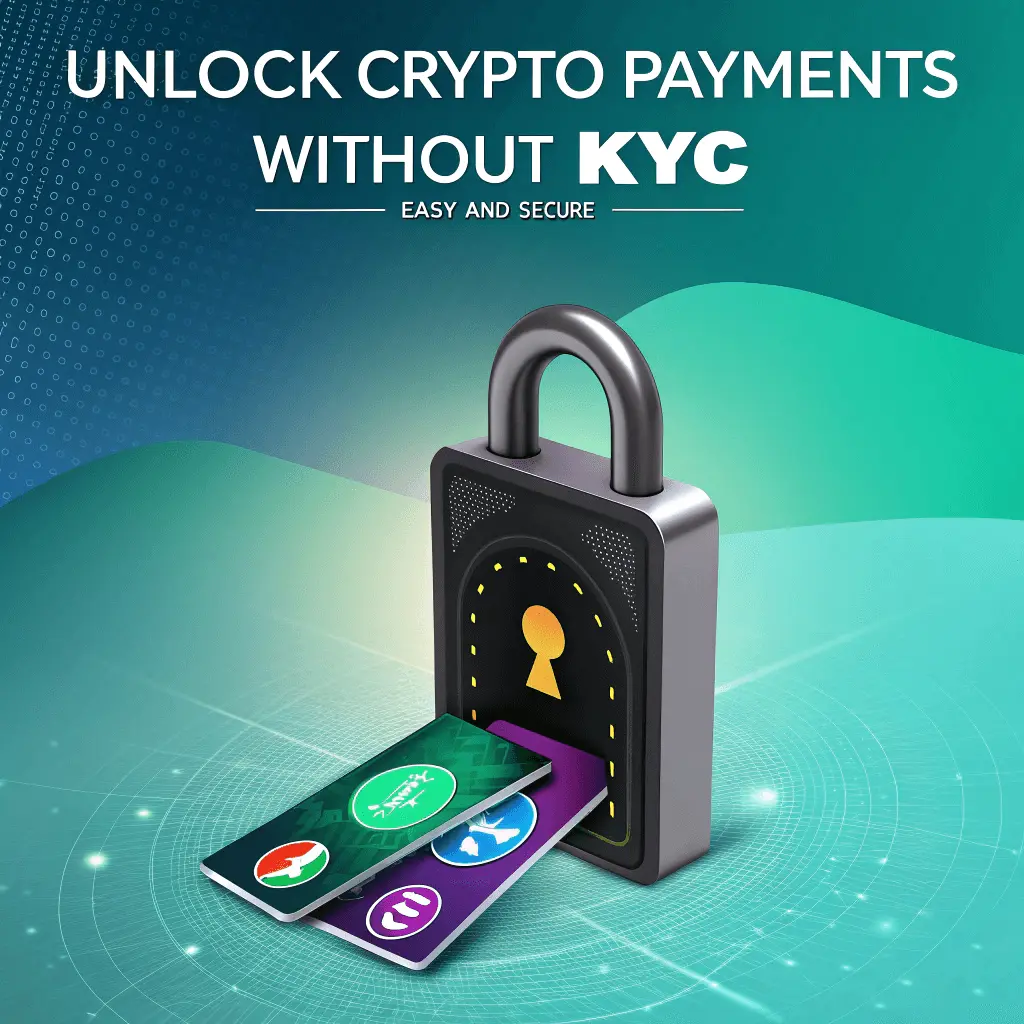
You’ve probably heard the buzz about cryptocurrency payments, but the Know Your Customer (KYC) requirements might seem overwhelming. Here’s the thing: you don’t always need extensive identity verification to start accepting crypto. Let’s break down what this means for your business.
What Are Non-KYC Crypto Payments?
Non-KYC crypto payments let you accept digital currencies without collecting detailed customer information upfront. Think of it like accepting cash at your coffee shop – the transaction happens without lengthy paperwork or identity checks.
Traditional payment processors require mountains of documentation. Credit card companies want social security numbers, addresses, and employment history. Crypto can be different. You can accept crypto payments without KYC and have them go directly to your digital wallet without your customers jumping through verification hoops.
Why This Matters for Small Businesses
If you’re running a local bakery or freelance design business, every customer interaction counts. Non-KYC crypto payments remove friction from your checkout process.
Your customers can pay instantly without creating accounts or sharing personal data. This appeals especially to privacy-conscious buyers and international customers who might struggle with traditional payment methods. Plus, you’ll typically see lower transaction fees compared to credit card processing.
The speed factor is huge, too. While bank transfers can take days, crypto payments settle within minutes or hours.
Scaling Up: Medium and Large Business Considerations
Larger operations have different needs. You’re handling higher transaction volumes and likely dealing with more complex regulatory requirements.
For medium-sized businesses, non-KYC crypto can work well for specific use cases:
- Digital product sales
- International transactions
- Subscription services
- Event ticketing
Large enterprises need to be more strategic. You’ll want to integrate crypto payments alongside traditional methods rather than replacing them entirely. Consider offering non-KYC options for smaller transactions while maintaining KYC processes for larger purchases.
The Legal Landscape You Need to Navigate
Here’s where things get interesting. The regulations vary significantly by location and transaction size.
In many jurisdictions, businesses can accept crypto payments under certain thresholds without extensive KYC procedures. However, you still need to comply with basic anti-money laundering (AML) requirements and maintain transaction records.
You’re not completely off the hook for documentation. Most countries require businesses to report crypto transactions above specific amounts – often around $10,000. Always consult with a qualified attorney or compliance expert familiar with your local regulations.
Practical Implementation Steps
Getting started is easier than you might think. First, choose your cryptocurrency types. Bitcoin and Ethereum are widely accepted, but consider stablecoins like USDC for less volatility.
Set up a business wallet through reputable providers. Many offer simple integration tools for e-commerce platforms. You can literally be accepting crypto payments within hours, not weeks.
Consider using payment processors that specialize in crypto but don’t require extensive KYC for smaller amounts. These services handle the technical complexity while keeping compliance manageable.
Managing the Risks
Let’s be honest about the challenges. Cryptocurrency values fluctuate, sometimes dramatically. You might receive payment worth $100, that is worth $90 by the next day.
Consider converting crypto to stable currencies immediately if you’re concerned about volatility. Many payment processors offer instant conversion features.
Also, think about customer support. Crypto transactions can’t be reversed like credit card chargebacks. Make sure your refund and dispute policies account for this difference.
What the Future Holds
Non-KYC crypto payments offer genuine opportunities for businesses of all sizes. They’re not right for every situation, but they can reduce costs, eliminate payment processing delays, and attract new customer segments.
Start small, stay compliant with local laws, and gradually expand your crypto payment capabilities as you gain confidence. The technology is here, the tools are available, and your customers are increasingly ready to pay with digital currencies.

